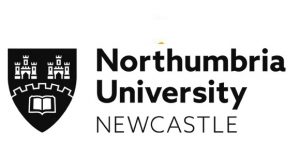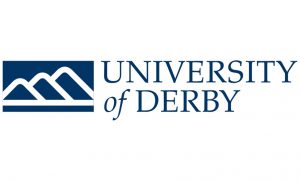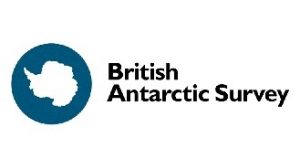Leading scientific teams
Evidence-based tools and techniques for lab and reseach leaders
Why do some science and research teams outperform others? And what can their leaders do to ensure theirs is happy, efficient and doing its best work?
Informed by the best research, Leading Scientific Teams offers an intensive dive into the controllable factors that influence the performance of scientific teams. It provides participants with a range of practical tools they can use to make an immediate impact on the health and productivity of their teams.
The workshop is led by a specialist facilitator, with content adapted to meet your needs.

Delivery formats:
Virtual: 2 x 2 hour live virtual training sessions, delivered at a time to suit you, worldwide.
Classroom: UK-only. One-day, in-person at your site.
Key themes

Collective intelligence
CI is the group equivalent of individual IQ. Teams with high CI outperform others on a range of tasks, from ideation to decision-making. Boosting CI is a key part of a team leader's role.

Social perceptiveness
Emotionally intelligent leadership is a learnable skill, and there are many tools, techniques and processes that you can use to help you get the best from those you manage.

Psychological safety
Creating an environment in which members feel supported, confident and respected is essential to long-term team performance, reducing attrition and maintaining engagement.

Cognitive diversity
Scientific teams often encompass a variety of minds, personalities and ways of thinking about and seeing the world. Ensuring every member feels accepted and understood is key to the team achieving its potential.

Skills congruence
One of the most powerful ways of boosting CI is to understand the skills of team members, and to find ways to collaborate that play to these strengths.

Collaboration processes
Some of the simplest levers to pull to improve team performance are about putting in place processes to facilitate better meetings, communication, direction and collaboration.

The syllabus of the Leading Scientific Teams programme is based on the latest and best peer-reviewed research, as well as on the hundreds of interviews and conversations we conduct with scientists every year.
Our in-house research team sifts the latest findings to give you the best possible picture of current thinking, ensuring that all of the key ideas presented during the training are backed by quality social scientific evidence.
We know that scientifically-minded audiences often want to see the research behind the tools and techniques we teach, so we provide this extra depth of information during each module, as well as referencing articles and books they can use to explore the subject further after the course.
Session 1 / morning
INTRODUCTION
The science of teamcraft: what's the evidence?
- Introduction to the science of teamcraft: What is "collective intelligence"
- Research on the relationship between collective intelligence and team effectiveness
- Factors that contribute to collective intelligence and team performance
PART 1
Social perceptiveness and emotional intelligence
- What is "social perceptiveness"?
- The research on the tension between the scientific mindset and social perceptiveness
- How high and low emotional intelligence members impact how a group or team functions
- Tools for building self-awareness, empathy and emotional intelligence
- Recognising and managing emotions under pressure
PART 2
Psychological safety
- What is "psychological safety"?
- The benefits of psychological safety to team productivity
- 10 practical ways to build psychological safety in your team
- Building a safe and constructive environment in which to disagree
- How to facilitate healthy, productive disagreement in teams and in meetings
- Identifying ways to role model psychological safety as leaders
Session 2 / afternoon
PART 3
Cognitive and neuro diversity
- What is "cognitive diversity"?: “inclusion of people with different beliefs, viewpoints, approaches”
- The competitive advantages of cognitive diversity in teams and organisations
- What is "neurodiversity"?: “inclusion of people with different brain function, ways of thinking and interacting with others”
- Understanding and adapting to support and build relationships with neurodiverse colleagues
PART 4
Skills congruence and collaboration processes
- What is "skills congruence" and why it is so important to team performance?
- Understanding your own skills and strengths (optional online assessment completed before the session)
- Identifying and developing your team members' strengths
- Creating effective processes to achieve goals and capitalise on the team’s strengths profile
- Agreeing objectives and goals for teams and individuals
- Reviewing and encouraging progress during 1:1s
- Holding effective, inclusive meetings
Conclusion
Action planning
- Creating individual action plans based on key takeaways from the course
- Conclusion and close
OPTIONAL ADDITIONAL SUPPORT
Team analytics and strengths workshops
Teams that have a strong understanding of each other's skills, abilities and talents have been found to be significantly more successful at team decision-making and problem-solving than those that do not (read the evidence).
To help an individual team to develop this understanding (sometimes called "skill congruence") we can work with them to run a team strengths workshop. During this practical and engaging day, we'll explore the mix of talents within the team, and help put in place processes to enable its members to collaborate more effectively.
We use a range of psychometrics and personality assessments to allow individuals and teams understand their strengths in an objective way. Gallup’s respected CliftonStrengths® tool is a popular option, as well as an Emotional Intelligence 360° assessment, but our consultants are qualified in delivering and coaching on a range of tools, including MBTI, Belbin Team Roles, DISC and Firo-B amongst others.

Find out more about StengthsFinder here: StrengthsFinder® assessments and workshops
Track record
The STEM Leadership Academy grew out of our twenty years of experience working with scientific and research organisations in the UK's Cambridge STEM Cluster and far beyond, helping to develop a generation of new science and research leaders.
Over that period, our consultants have delivered training for thousands of people from some of the biggest names in global science. Click here to read some of the feedback we have received.
Clients include:









Find out more or get a quote
Wherever you are based around the world, the Leading Scientific Teams programme can be delivered live by our expert facilitators as virtual training, split into two two-hour sessions. Classroom training is also available in the UK.
For an idea of pricing or to arrange a call with one of our consultants to discuss the programme in more detail, please get in touch with some basic information:
- A rough idea of how many participants need the training
- Whether you want the training delivered at your offices/lab or virtually
Contact us via:
email: info@stemleadershipacademy.co.uk
call: +44 (0)845 226 0624
